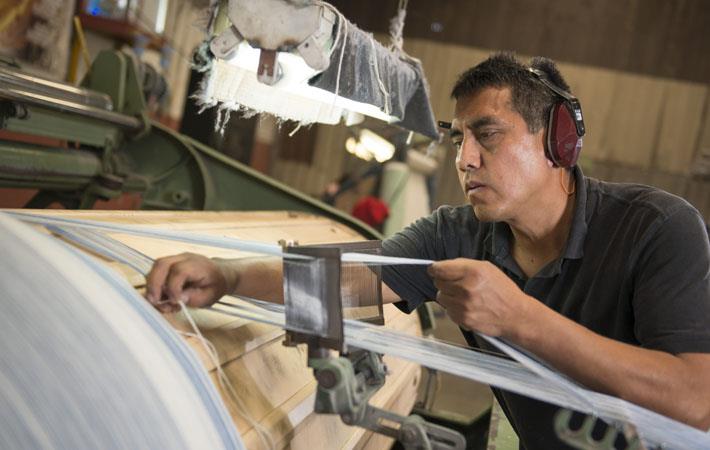Boosting circular fashion, C&A Foundation has selected five pilot initiatives as part of its open request for proposals to bridge the gap in the implementation of circular business models at all levels of the global apparel value chain. This follows its 2017 Request for Proposals: ‘Bridging the Gap’ Implementation of Circular Economy in the Apparel Sector.
The Foundation has announced €1.29 million in funding to support these initiatives.Boosting circular fashion, C&A Foundation has selected five pilot initiatives as part of its open request for proposals to bridge the gap in the implementation of circular business models at all levels of the global apparel value chain. This follows its 2017 Request for Proposals: 'Bridging the Gap' Implementation of Circular Economy in the Apparel Sector.#
The Bridging the Gap’s partners will complement existing industry initiatives working towards a circular fashion industry, including Fashion for Good, Ellen MacArthur Foundation’s Make Fashion Circular and Global Fashion Agenda’s 2020 Circular Fashion System Commitment. Circular business models are essential to transforming the fashion industry and creating a system that provides safe and just working conditions, regenerates ecosystems and strengthens economies and communities. However, while many brands and retailers are showing an interest in a circular economy, few are redesigning their business models to make it happen. The key question is how businesses will adopt them for their own company.
Douwe Jan Joustra, head of Circular Transformation, C&A Foundation, said: “We believe the circular fashion revolution will only happen when we implement circular business models. We are pleased to be supporting these five new partners. The critical practice-based insights they develop and share will bring the industry a significant step towards these new models, moving the discourse on circular fashion from words to action.”
The initiatives include Creative Circular Economy Business Models: London Waste and Recycling Board and QSA Partners. This London-based initiative will provide one-to-one support to four retailers and lead each company through a tried and tested process for developing circular business models. Three retailers will then pilot a circular business model by the end of 2020 and commit to permanently bringing these offers to market by May 2021.
Another initiative is the Circular Activation Project: Circle Economy. This Europe-based initiative will uncover the operational barriers to circularity and build a circular innovation process to be piloted by six brands or retailers by October 2020. A multidisciplinary team will guide brands through the process, increasing their capacity to overcome barriers towards implementation of re-commerce and renting/leasing circular business models. The lessons learned throughout the process will be used to develop a suite of commercially viable offline activation tools for widespread use by brands and retailers.
The third project - Circular Leap Asia Programme: Forum for the Future - will support the uptake of circular business models in Asia by developing six new types of partnerships between upstream and downstream companies in apparel. A large part of apparel manufacturing typically operates on thin margins and faces significant barriers to the uptake of circular approaches in their businesses. The proposed new partnerships will enable joint innovation and the collective sharing of lessons learned through a summit for practitioners of circular fashion. It will also result in a series of recommendations for industry-led advocacy focused on the policy shifts that promote circular fashion in Asia.
The fourth project - Market Makers: World Resources Institute and WRAP - will challenge the status quo by demonstrating the market demand for clothing reuse models in over 20 major apparel brands in the USA, UK and India. It will assess consumer demand, pilot innovative business models, provide a common approach to impact assessment, and identify policies, regulations and incentives that increase clothing reutilisation in each geographic location.
In the fifth initiative - Love Every Fibre of Your Being: MADE-BY and Global Action Plan - brand executives from British based retailers and young women will come together through workshops and panels to co-create prototype business offerings and brand messaging for circular business models that aim to improve the mental well-being of young women. The best ideas will be packaged into installations and shared with the public around a popular fashion event such as London Fashion Week.
The five selected initiatives will form a learning network facilitated by C&A Foundation where project teams can connect, and share lessons and evolving methodologies. (SV)
Fibre2Fashion News Desk – India
